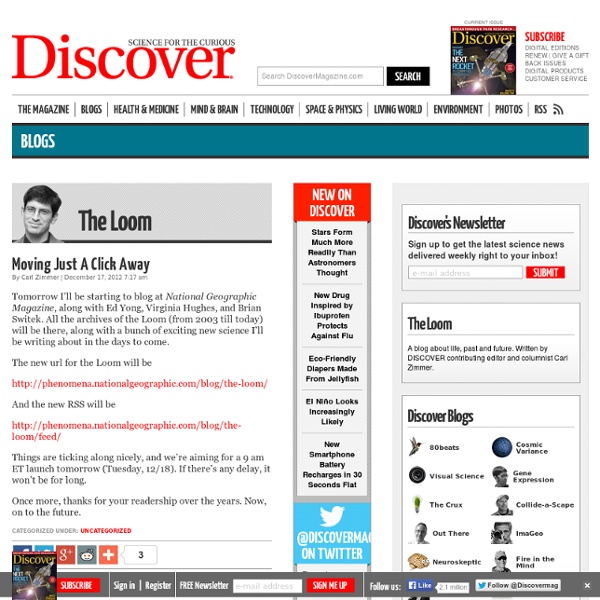The Loom

Science - News for Your Neurons
Skulls in the Stars | The intersection of physics, optics, history and pulp fiction
NeuroLogica Blog
Jan 13 2017 Cognitive Biases in Health Care Decision Making This was an unexpected pleasant find in an unusual place. The Gerontological Society of America recently put out a free publication designed to educate patients about cognitive biases and heuristics and how they can adversely affect decision making about health care. The publication is aimed at older health care consumers, but the information it contains is applicable to all people and situations. It is a well written excellent summary of common cognitive biases with a thorough list of references. What is most encouraging about this publication is the simple fact that it recognizes that this is an issue. The report is aimed simultaneously at health care providers and patients. Continue Reading » Jan 12 2017 Curcumin Hype vs Reality A recent systematic review of the alleged health benefits of curcumin show that, yet again, hype based on “traditional use” is not a reliable guide. The systematic review had two main findings: Jan 10 2017
La Aventura de la Ciencia
Bad Astronomy
Well now, this is an interesting discovery: astronomers have found what looks like a "super-Earth" – a planet more massive than Earth but still smaller than a gas giant – orbiting a nearby star at the right distance to have liquid water on it! Given that, it might – might – be Earthlike. This is pretty cool news. Now let me be clear: this is a planet candidate; it has not yet been confirmed. The star is called HD 40307, and it’s a bit over 40 light years away (pretty close in galactic standards, but I wouldn’t want to walk there). Massive planets tug on their star harder, so they’re easier to find this way. In this case, HD 40307 was originally observed a little while back by HARPS, and three planets were found. We don’t know how big the planet is, unfortunately. But the very interesting thing is that it orbits the star at a distance of about 90 million kilometers (55 million miles) – closer to its star than is is to the Sun… but that’s good! Image credits: ESO/M. Related Posts:
La ciencia es bella
Pharyngula
As anyone who has ever raised aquarium fish knows, they’re all different. Maybe you think a fish is just a fish, not very different from one another and all rather stupid, but I spent years sitting next to tanks of zebrafish, and I can tell you you’re wrong. I’d watch them gamboling about, and you’d quickly realize that oh, that one is aggressive, that one likes to hid, that one gets the zoomies and darts about the tank. I always wondered about that. But now a new study comes along that does what I would have been excited to know about 20 years ago (and I still am!). To determine the causes and mechanisms that can generate behavioral individuality in the absence of genetic and environmental differences, it is essential to first pinpoint when behavioral individuality emerges and how it continues to unfold after emergence. To cut to the conclusion, Amazon mollies differ on Day One, with all that implies. Individuality increases gradually throughout the first 70 days of development.
Enchufa2
Why Evolution Is True
Microsiervos
The Panda's Thumb
e! Science News | Latest science news articles
Afarensis: Anthropology, Evolution, and Science
La ciencia de tu vida
Related:
Related:



